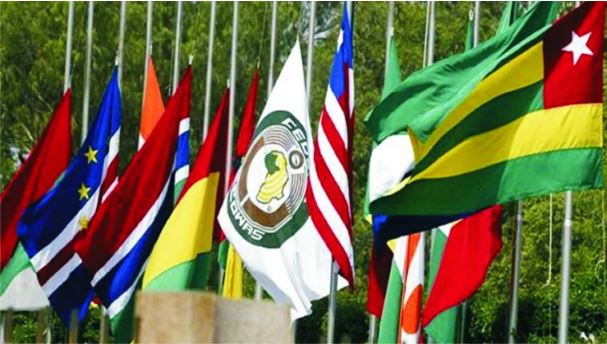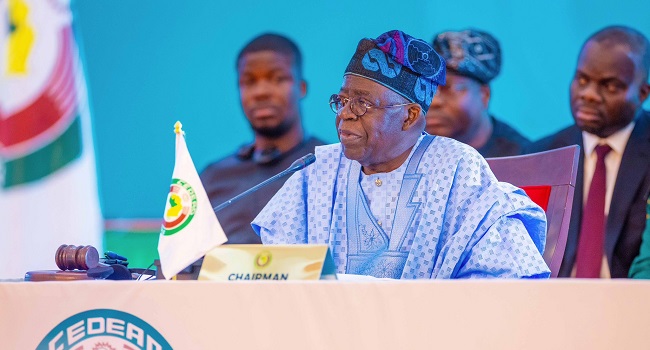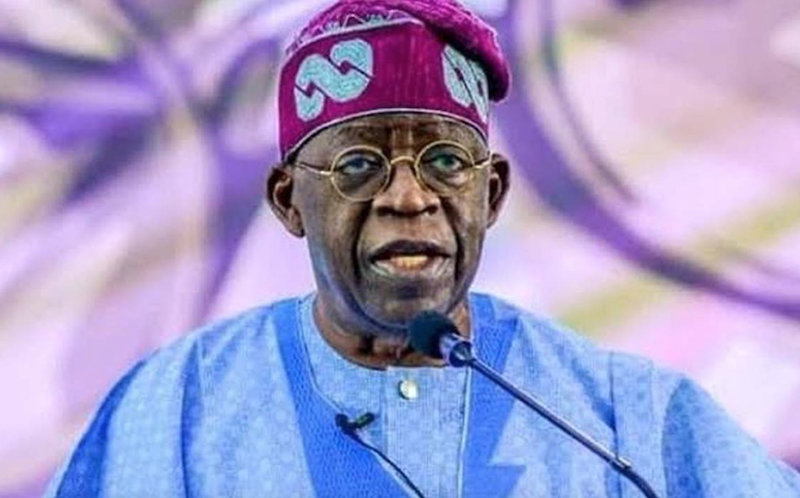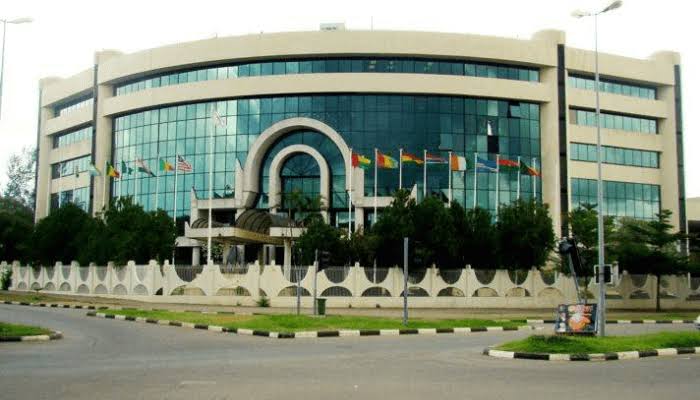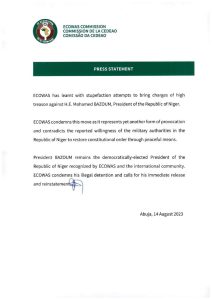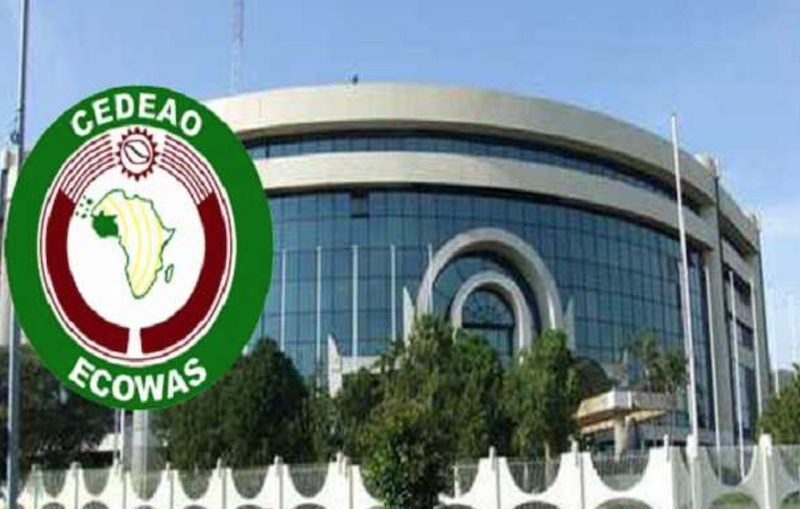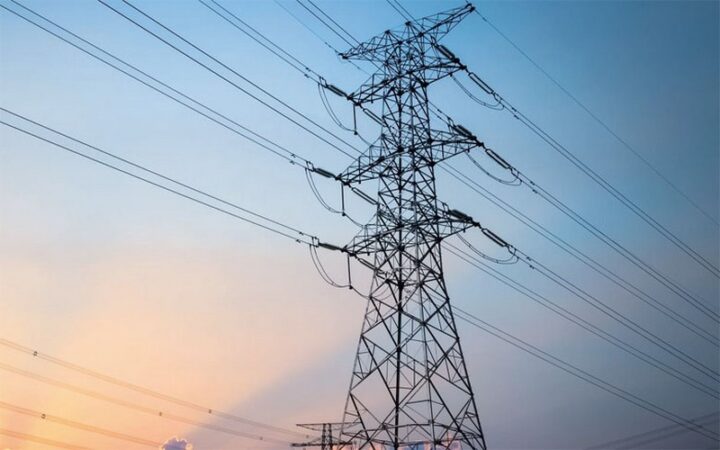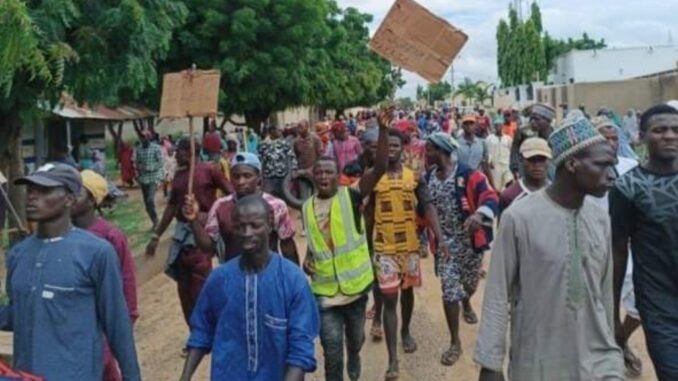By Temitope Ponle
Is the Economic Community of West African States (ECOWAS) the proverbial house divided against itself?
On July 26, the military in Niger Republic staged a coup which ousted the government of President Mohamed Bazoum.
This occurred after armed guards had taken over the presidential palace in Niamey, the capital, and placed Bazoum under house arrest.
Gen. Abdourahamane Tiani, the former head of Bazoum’s presidential guard, shut Bazoum in his palace and later declared himself head of state.
The 15-nation regional bloc, ECOWAS, then took a hardline position on the coup when it gave a one-week ultimatum to the junta in Niger to release Bazoum from detention and revert to status quo ante or face a military invasion of an ECOWAS military force.
This hardline position of ECOWAS leaders prompted Mali and Burkina Faso, both neighbours of Niger and being led by military leaders themselves, to say that they would consider any military action in Niger as a declaration of war against them too.
This scenario has portrayed the sub-regional bloc as a house that is polarised against itself.
Speaking on the situation with Niger, Gen. Christopher Musa, Nigeria’s Chief of Defence and Chairman of the ECOWAS Defence Chiefs, said in Abuja at a meeting with other defence chiefs in the sub-region that “the task of restoring democratic governance in Niger is fraught with potential hurdles and complications.
“Our decisions will send a strong message about our commitment to democracy, our intolerance for unconstitutional changes of government, and our dedication to regional stability.”
The Committee of Chiefs of Defence Staff of ECOWAS countries convened in a three-day Extraordinary Meeting, on Aug. 4.
The ECOWAS defence chiefs, however, said there should be a comprehensive approach that encompasses political, security, and diplomatic dimensions in addressing the situation in Niger Republic.
“Democracy is what we stand for and democracy is what we will sustain,” the general added.
Musa said the military chiefs agreed that there was no alternative to democratic principles and the rule of law in the sub-region, adding that the coup in Niger represented blatant disregard for the fundamental principles that underpinned sub-regional integration and stability.
According to him, the meeting recognised the fact that the coup highlighted the fragility of the region.
He called for the enhancement of intelligence sharing, joint training exercises, and capacity-building among defence and security forces of the sub-region to effectively combat threats to collective security and enhance interoperability.
ECOWAS Commissioner for Political Affairs, Peace and Security, Amb. Abdel-Fatau Musah, commended the military chiefs for taking time to produce a concept of operation for an eventual military intervention to restore constitutional order in Niger.
He explained that all elements that would go into any intervention had been worked out and were being refined, including the timing, the resources needed, as well as how, where, and when to deploy such force.
“But first, we are giving diplomacy every chance to succeed and there have been multiple approaches to the military Junta in Niger,” the ECOWAS commissioner said.
Chief Olabode George, a chieftain of the Peoples Democratic Party (PDP) and a former military governor of Ondo state (1988–1990), called for dialogue and said the social and security situation in Niger was a call to look inwards rather than go to war.
“The are issues of internal security of the country, the insurgency that is ravaging Nigeria, problem of the Fulani herdsmen, the Boko Haram, the hunger of the people, making people restless.
“So why add another fourth dimension to it? Does it make any economic sense? Is it going to affect our economy or going to affect the way we resolve our own crisis here? The worst part of it is it will make economic indices go worse.”
George reiterated that the ECOWAS was set up to establish economic cooperation and to raise the living standards of the people in the community.
“Is ECOWAS built for military intervention? It is not like the North Atlantic Treaty Organisation (NATO)
“It is not different from the European Union (EU) which is for economic cooperation, but NATO is military.
“ECOWAS has nothing to do with military really. You can have them for peacekeeping, not warfare,” he stressed.
He, however, urged the ECOWAS to jointly fight against the “mindless stealing of raw materials” being perpatrated by non-African countries, establish industries, and train the people of the community for the betterment and development of the sub-region.
“We’ve had enough of you (foreigners) taking our resources to support your standards of living out there and giving us pittance in return.
“The largest deposit of uranium, that is used for nuclear weapons, is located in Niger, and the country has a stupendous amount of gold deposit, and potassium too.
“It is a new century, a new beginning. Africa must fight for its people.”
Speaking with NAN, Sen. Shehu Sani, former Senate Committee Deputy Chairman on Foreign Affairs in the 8th Senate, said it was understandable for both Mali and Burkina Faso to take the stand they took against the military invasion of Niger considering that they are both being ruled by military juntas and therefore protecting their own interests as well.
Sani, who represented Kaduna Central Senatorial District (APC) from 2015 to 2019 urged ECOWAS member states to take advantage of the face-off between the Francophone countries and their colonial master, France to strengthen the bond between them rather than allow divisive elements to cause a crack within the bloc.
He advised all member states to take advantage of the current impasse not to carry out a military invasion of Niger but to come up with a common currency that both the Anglophone and Francophone countries could use to promote the socio-economic development of the sub-region.
Analysts are of the opinion that ECOWAS members cannot afford to allow primaeval sentiments and other divisive elements to polarise them, especially in view of the volatile nature of the sub-region.
They draw attention to the fact that jihadists and other terror groups in the sub-region could capitalise on the existing crisis and use it to further exacerbate the already bad security situation in West Africa and thus make peaceful governance difficult if not impossible.
NAN
